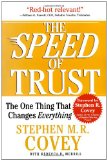I would never had thought…
Those that are acquainted with me know that I was betrayed by my “best friend”. On an ordinary day, seven years ago, this guy turns his back and takes with him eighty-five thousand euro in different kinds of goods.
He had been my friend for 20 long years.
Since then my beliefs are divided between “to trust is good, not to trust is better” and the more Gandhian saying “the more you give, the more you receive”. During my classes, we often touch on the subject of “trust” and it is not easy for me to talk about it, so I have to turn to the use of the immense power of films.
On a few occasions, I have shown this film scene, that is in our archive, and then I ask:
Will Matthew jump from the wall, or not?
Trust is an unconscious emotion that makes us vulnerable to others. In its absence, we get stuck, we analyse in a lot more detail and everything becomes slower. Studies by Stephen M. R. Covey show how the lack of confidence makes everything more expensive, while trust is a way to earn more money. When discuss these questions, people close to me ask if the blow was not enough.
I quote the words of Jack Nicholson, directed at his son in the movie “How do you know?”
You do not trust anyone. Not him, not me. Cynicism is sanity. Good guidelines, I’m afraid. I assumed that with everyone working creatively on the new line.
The truth is that when I was “cheated”, it so happened that I was close to Mr. Covey, and I absorbed many of his ideas. Among these ideas, the one that changed my point of view on the matter, laid bare one of my greatest weakness:
we tend to think in terms of loss: “What do I lose if my trust is betrayed?” and never in terms of gain: “What do I gain every day when my trust is reciprocated?”. Suddenly I had to turn the spotlight on dozens of collaborators and partners who reciprocate that trust every day and without whom it would be difficult for me to “progress” in the business world. So if I had stopped at the “to trust is good, not to trust is better,” I would have stopped growing and penalised men and women worthy of trust.
I know it is not easy, and it was not even easy for me. For the six months afterwards, I went through hell.
In the scene when Matthew gets on the wall, he says: “It is not a question of trust,” but in fact it is.
Trust is made up of two fibres, one is character (respect, ethics, moral integrity), and Mary seems to be the example of this, but the other is competence (preparation, skills, experience), and Mary is definitely lacking in this.
So, I have been betrayed by the complete absence of ethics. In other cases, by the lack of competence, but this is a mistake which is easier to put right.
Consider the following implication: one of your co-workers is recommended to you as a very correct person, but unable to interact with difficult customers. Would you trust that person to handle an important deal?
Vice versa, if that person was cunning and acute in relationships, but correctness was not their strong point. What would you do?
Evidently “character and competence” are essential in generating that propulsion of trust and this is true in most cases, except in one: children.
For them our “I trust you” goes beyond competence, it stems from love that is the highest form of ethics. For a child you would be able to “throw yourself off that wall” at any time.
Share to spread the “trust”.
In our archive you can find dozens of scenes that can help you describe “trust” as a means to achieve more in life and in business.
Take advantage now of the current promotion:
https://trainingwithmovies.com/subscription/
“… and in case I don’t see ya…
good afternoon, good evening and good night!”…
(The Truman Show)
Virginio


